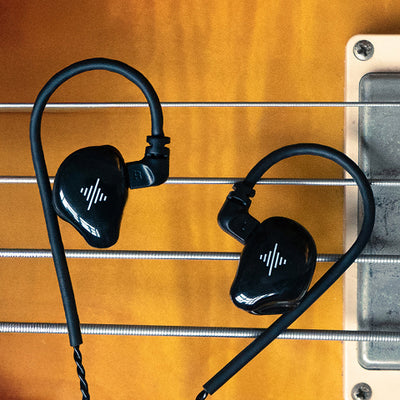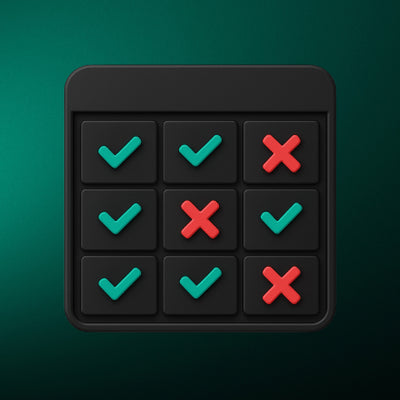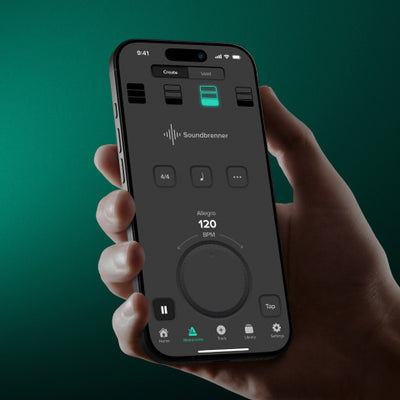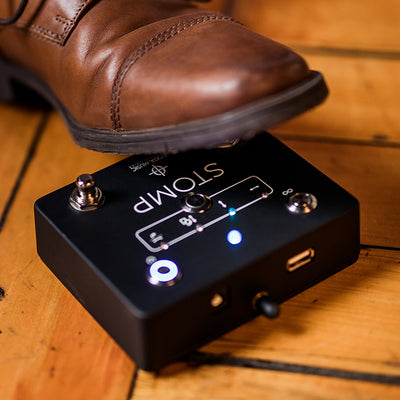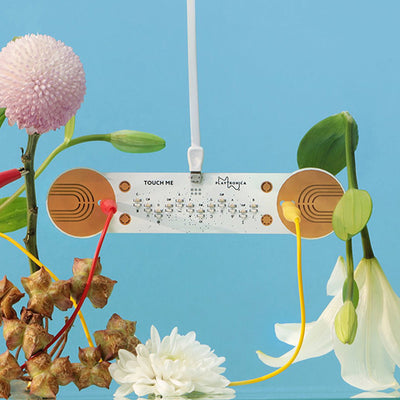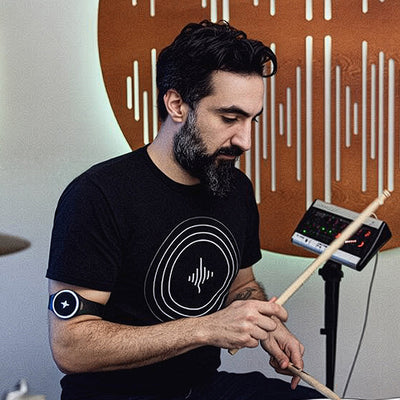Blog9 min read
Tips for effective music practice sessions
Does music practice feel like a chore? Discover tips for richer, healthier practice to achieve your goals faster.
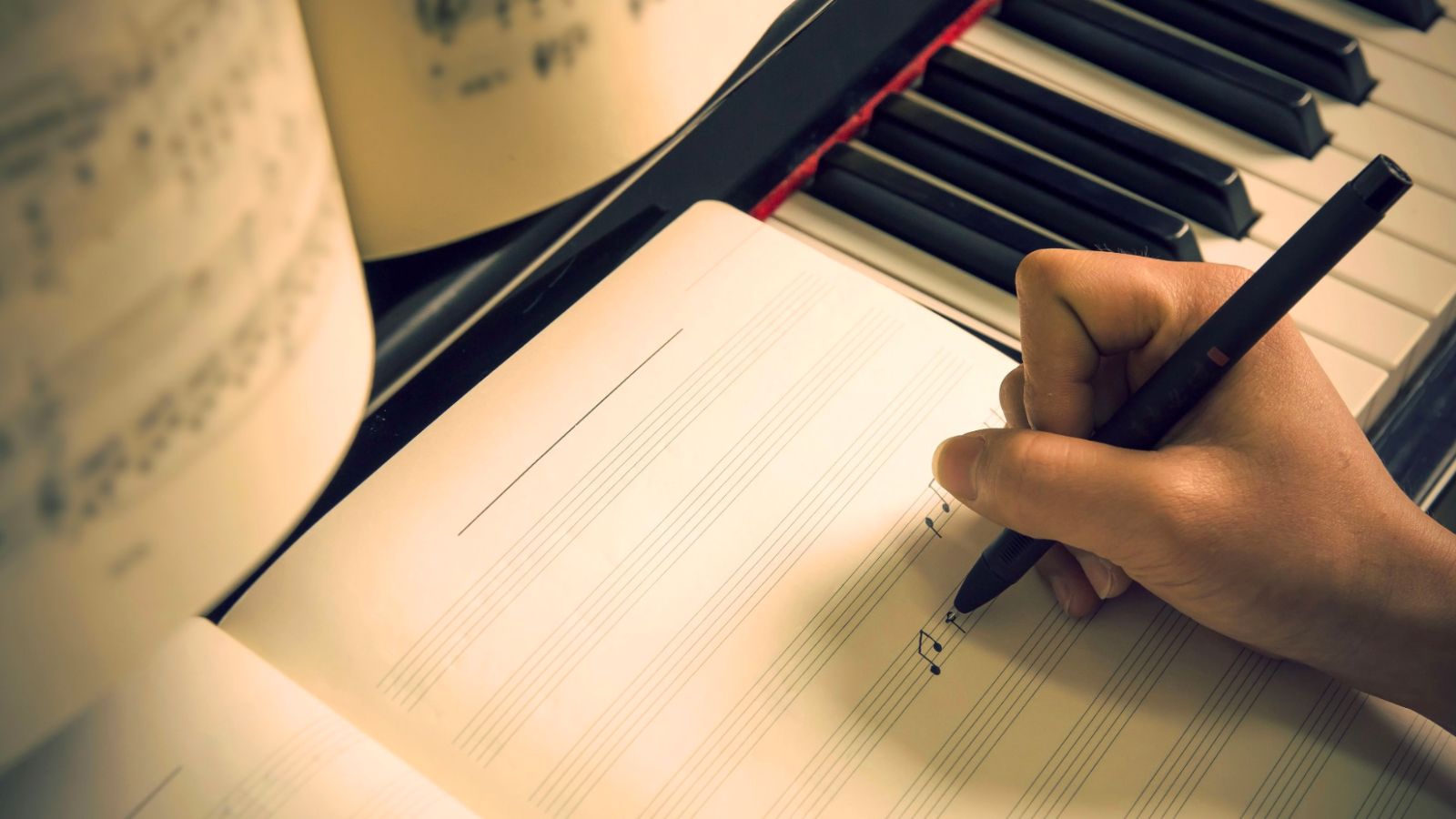
Does music practice feel like a boring chore? Or do you feel like you're not progressing as fast as you would expect? Maybe your music practice sessions aren't optimized in a way that would allow you to really develop your musicianship. In this post, you'll find tips to help you get on the path to rich and healthy music practice to achieve your goals faster.

What music practice should be?
When we talk about music practice, most of the time we are referring to the act of practicing music on an instrument. One main goal is to use the instrument to be able to use it as a conduit for your musical ideas, to the point that it becomes an extension of you. All this may seem obvious, but it can significantly influence how you practice and develop your skills. Understanding this will help you avoid boredom, making each session an adventure of self-discovery and musical development.
One other thing to keep in mind is that studying music is a life-long and continuous process, and that consistency is key. So, you need to make sure to keep showing up to your music practice sessions and reap the rewards of those efforts. The amount of time you practice matters, but the quality of your practice is also very important. If you focus and make efficient use of your time, you will progress much faster and achieve your goals. Study hard, but study smart.
Plan your practice sessions
Before picking up your instrument, organize what you'll practice and how much time you are going to spend on each material. Create a proper practice schedule to simplify your sessions, helping you cover everything and avoid burn out. Make a list of the subjects you need to cover and define your practice time. Then divide that time into chunks per subject you need to cover and stick to it.

Not having a practice schedule will probably make you feel like you are aimlessly playing the same things that you already know, increasing the chances of boredom and not seeing much progress over time. One can say that if you are practising what you know, or are always too comfortable, then you are not doing it right!
Warm-up
Playing an instrument is a physically demanding task. That said, you need to prepare your muscles for the activities you are going to realize. And much like anything, you don’t need to always do the same things to warm up. During those 15 minutes or so, you can do scales - probably the ones you are going to need for a music piece you are playing; practice chords; rhythm changes; revisit what you rehearsed in the last session; etc.
Use a metronome
Please, do yourself a huge favour and use a metronome! It should be needless to say, it is paramount that you as a musician are able to play in time. There is no way you can really enjoy playing with others and develop your musicianship if you are not able to keep up and play in time. Start slow, be focused and mindful of what you are doing, and build on that so you don’t internalize mistakes. In case you don’t know or feel unsure about how to use a metronome in your music practice, check out this article

Different angles
Music has so many avenues to explore, be it from different techniques, new chords, scales, language, and expression to different genres. You don't have to stick to the same old things all the time. For instance, the harmonic minor scale can be found in various musical contexts. Now that you learned it and know how it sounds, you can explore its modes, chords, and then their respective extensions and arpeggios on your instrument. Depending on the genre, you will find different ways of exploring these materials and using them in context, both harmonic and melodically. Looking at your music practice through different approaches will surely help you introduce novelty into your practice sessions.
Practice musically
Although it’s not always possible, try to practice musically. Alright, you have scales and arpeggios to practice and these patterns need to be ingrained into your muscle memory. But don’t be confined to just playing scales or arpeggios up and down. Don’t forget that everything that you need to practice is so that you can actually make music. That said, find ways to immediately apply what you are studying to a musical context such as improvising over a backing track or, even better, creating your own backing tracks. In the case of the latter, you will be learning how to use a DAW (digital audio workstation), how to record yourself, compose for other instruments, mixing and apply your musical knowledge to create chord progressions in a structured piece of music.
With that said, don’t limit your studies to just playing music pieces. Try to understand what makes them work, including the scales, chords, and progressions used. After you’ve done this analysis, create a musical exercise or a musical etude to apply what you have learned. This will help you understand how comfortable you feel with that technique or concept.
Solving problems
You know, that part of the song that is giving you a hard time every single time. Should you just go through the whole thing again and hope for the best? Wrong! You should definitely address the problem. Identify it, isolate it, understand what is going wrong and break the whole passage into small and more manageable chunks, slow it down and build up using the metronome.
Although you’ll need different strategies for different problems, you’ll see that this approach yields great results in the long run. You’ll have to be creative to solve specific problems. Don’t shy away to come up with your own exercises to tackle your personal difficulties. And again, try to create little pieces of music from the exercises you create to overcome your personal difficulties. It will make your practice sessions more musical, more fun and yet more challenging.

Practice away from the instrument
This strategy is sometimes overlooked, but you can also recur to memory as means to preview and access experimented positions. Try to visualize yourself playing a certain musical passage. In other words, you are accessing a part of the mind that translates an intended action into a physical action. If you are able to visualize and recreate the movements that you need to execute, as vividly as possible, you can improve your muscle memory faster.
One other situation that has been shown to yield great results, is to study or analyze the music you want to practice before you actually play it. Figure out where the hard parts are, what will you do to tackle them, the scales and chords you will need to use, the music piece structure, the meter, tempo, and so on.
Record yourself
In our day and age, this is very easy to accomplish, even if your only resource is your smartphone. After a music practice session, record yourself playing in audio and/or video. Either improvise or just play through the music piece you have been practising. Then, step back from the instrument and stop to listen. This is critical because you will be listening to your strengths and weaknesses. In other words, listen to what you need to improve upon and then include it in your practice sessions.
In conclusion
And that’s it! I hope that this post has inspired you to make the most out of your music practice sessions. Remember that your main goal is to master your instrument in order to use it as an extension of your musical mind. With that said, always try to practice musically and above all, mindfully. If you follow these tips, you’ll progress much faster, more effectively and with a greater sense of accomplishment as you master each subject. But most of all, have fun and enjoy the journey!

Pedro Murino Almeida is an Award-Winning composer with the musical project Follow No One, an expert musician and an experienced music teacher. He maintains a blog called Beyond Music Theory with the aim of providing tools and instruction for beginning to advanced music students and those wishing to learn about music theory, how to use it and improve their songwriting and music production skills.














